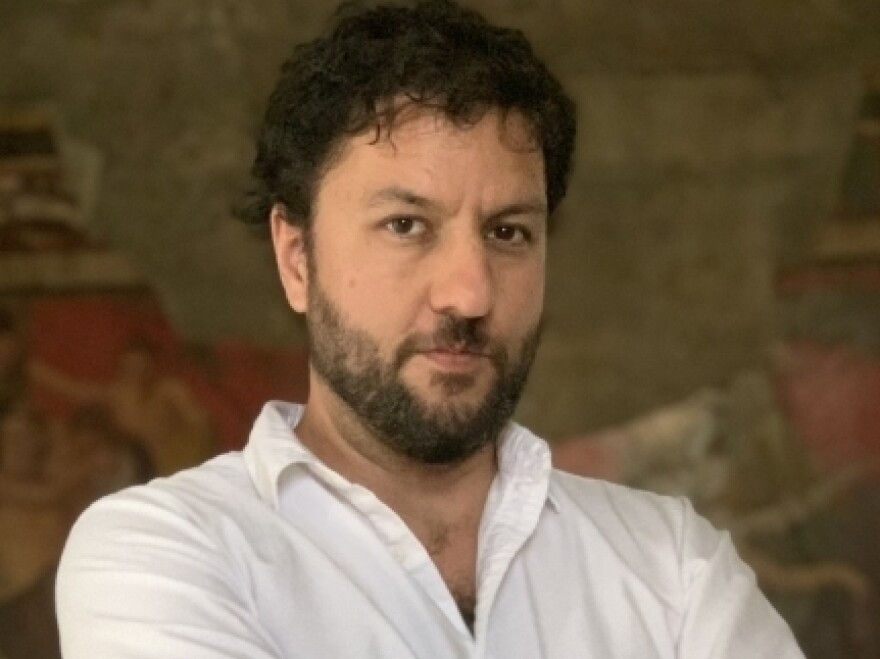Graphic novelist George O'Connor is a big hit on the grade school circuit. On a visit to Brent Elementary School in Washington, D.C. in early March, he talked about his creative process with about 70 fourth graders. On a big blank sheet of white paper, he drew the face of Dionysos, the god of wine and the subject of his latest book.
"A lot of people tried to replicate it, but I feel like no one can do such a good style," said Ari, one of the fourth graders.
His classmate Azania added, "He also did it in like five seconds which makes it even more incredible."

Dionysos: The New God is the last of O'Connor's Olympians, a series of graphic novels he's been writing and illustrating for the last 12 years. Each book retells the ancient Greek myths through the lens of one of the gods or goddesses, from Athena, goddess of wisdom, to Hephaistos, god of the forge.
O'Connor's illustrations are bursting with action, humor and lots of details. He researched the ancient myths in order to get as close as possible to the original stories. That means his gods and goddesses are fierce, but also voluptuous, mischievous and even snarky. To him, the Olympians are a family of distinct individuals. "There's certain personality traits that come to the fore," he said.
Take Zeus. O'Connor thinks a lot of the exalted depictions of the "King of Gods" are just wrong.
"He's not a dignified old gray-beard like Sir Laurence Olivier or Liam Neeson," O'Connor scoffed. "He'd be this 21 year old surfer dude from California with sick abs."
He pointed out that in most of the Zeus myths, the god is chasing those he's attracted to. "He can look like anything he wants. He wouldn't ever be the old dignified man. That's not Zeus."
O'Connor's favorite goddess is Zeus' wife Hera, whom he says is "full of quiet grace and dignity."
"In many retellings, she gets cast very simply as a bad guy, as the jealous shrew of a wife," he said, "not taking into account that Zeus is the worst husband imaginable."

Hera's marriage is betrayed. Artemis is clear that she will never be touched by men. Dionysos is born female and then becomes male. That the books don't turn their gaze from all of this is refreshing, said Brent Elementary school fourth grade teacher Caitlin Arbuckle.
"He doesn't shy away from the gender aspect, doesn't shy away from the fact the Dionysos enjoys a lot of wine, like the more adult things. But these kids, by the time they're in fourth grade, a lot of them, they do have that maturity and they know about the world," she said.

That's part of the point of his books, O'Connor said. He doesn't talk down to kids — and that's what draws kids to them. "Greek mythology is filled with stuff that people would clutch their pearls at and be like, 'But the children,'" he said. "I try not to clean up any of that. The world is filled with things that maybe upset your particular worldview, but they exist and they're things that children are going to encounter. So why not encounter them in story?"
Dionysos is the last Olympian for O'Connor, ending his series. Next up: graphic novels on Norse mythology.
Jennifer Vanasco edited this story for air and web.
Copyright 2025 NPR



